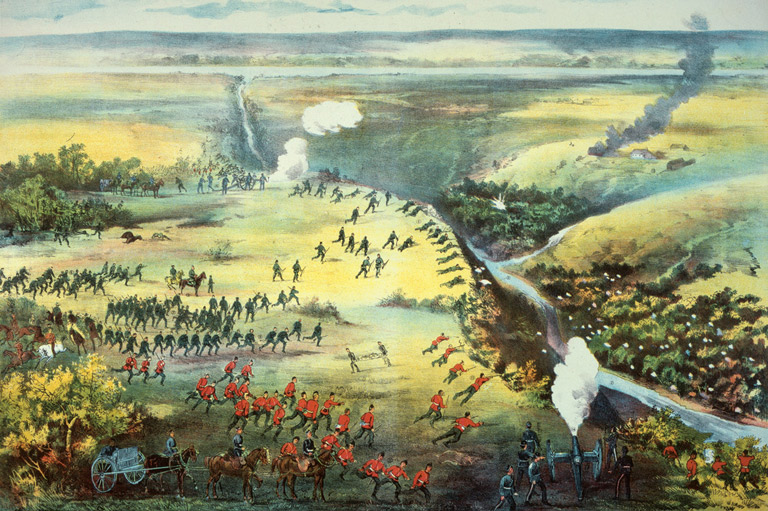July 8 is a date marked by significant events in Canadian history, encompassing political developments, cultural milestones, and pivotal moments in the nation’s journey. These events have played a crucial role in shaping Canada’s identity, governance, and its place on the global stage. This article delves into the key occurrences on July 8 that have left an indelible mark on Canadian history.
1. Birth of John A. Macdonald (1815)
One of the most significant events in Canadian history on July 8 is the birth of Sir John A. Macdonald in Glasgow, Scotland, in 1815. Macdonald immigrated to Canada and became a central figure in the country’s political landscape. As one of the founding fathers of Canada, he served as the first Prime Minister and was instrumental in the formation of the Canadian Confederation in 1867. His leadership helped shape the early political framework and expansion of Canada.
2. The Northwest Rebellion (1885)
On July 8, 1885, the Northwest Rebellion, also known as the North-West Resistance, officially ended with the execution of Cree Chief Big Bear. The rebellion was a pivotal conflict between the Métis, First Nations, and the Canadian government. The Métis, led by Louis Riel, and various Indigenous groups, sought to defend their land and rights against the encroaching Canadian government. The rebellion highlighted the tensions between Indigenous peoples and the federal government, leading to significant changes in policy and the treatment of Indigenous communities in Canada.
3. Canadian Pacific Railway Completed (1886)
July 8, 1886, marks a milestone in Canadian history with the completion of the Canadian Pacific Railway (CPR). This transcontinental railway connected Eastern Canada to British Columbia, facilitating the movement of goods and people across the vast nation. The CPR played a crucial role in the economic development of Canada, promoting trade, settlement, and the unification of the country. The railway’s completion symbolized a significant achievement in Canadian engineering and national unity.
4. Birth of Kathleen Wynne (1953)
On July 8, 1953, Kathleen Wynne, the first female Premier of Ontario, was born. Wynne’s political career has been marked by her advocacy for social justice, education, and healthcare reform. She served as Premier from 2013 to 2018 and was the first openly gay head of government in Canada. Wynne’s leadership and policies have had a lasting impact on Ontario and Canadian politics, reflecting the evolving landscape of diversity and inclusion in the nation’s political sphere.
5. Introduction of Universal Healthcare (1966)
On July 8, 1966, the Medical Care Act was passed, laying the foundation for universal healthcare in Canada. This landmark legislation established a publicly funded healthcare system, ensuring that all Canadians had access to medical services regardless of their financial status. The introduction of universal healthcare was a defining moment in Canadian social policy, reflecting the nation’s commitment to equity and social welfare. The system, known as Medicare, remains a cornerstone of Canadian identity and pride.
6. Terry Fox’s Marathon of Hope (1980)
July 8, 1980, is a significant date in the journey of Terry Fox during his Marathon of Hope. On this day, Terry Fox reached Montreal, Quebec, as part of his cross-country run to raise awareness and funds for cancer research. Fox’s inspirational journey began in St. John’s, Newfoundland, and continued westward, capturing the hearts and minds of Canadians. Although his run was cut short due to the return of cancer, Terry Fox’s legacy endures through annual Terry Fox Runs and the continued efforts to support cancer research.
7. Introduction of the Goods and Services Tax (GST) (1990)
On July 8, 1990, the Canadian government, under Prime Minister Brian Mulroney, introduced the Goods and Services Tax (GST). This federal tax was implemented to replace the Manufacturer’s Sales Tax (MST) and broadened the tax base to include a wide range of goods and services. The introduction of the GST was a controversial and transformative economic policy, aiming to improve the efficiency of the tax system and increase government revenue. Despite initial opposition, the GST has become a significant component of Canada’s fiscal policy.
8. The Kelowna Accord (2005)
On July 8, 2005, the Canadian government and Indigenous leaders reached the Kelowna Accord, a comprehensive agreement aimed at improving the socio-economic conditions of Indigenous peoples in Canada. The accord included commitments to address issues such as healthcare, education, housing, and economic development. Although the accord faced challenges in implementation, it represented a significant effort to enhance the relationship between the federal government and Indigenous communities and to address longstanding disparities.
9. The Canada-European Union Comprehensive Economic and Trade Agreement (CETA) (2017)
On July 8, 2017, the Canada-European Union Comprehensive Economic and Trade Agreement (CETA) provisionally entered into force. This trade agreement aimed to enhance economic cooperation and eliminate tariffs between Canada and the European Union. CETA represented a significant step in Canada’s trade policy, promoting economic growth, job creation, and stronger bilateral relations with European countries. The agreement continues to shape Canada’s economic landscape and its role in the global economy.
Conclusion
July 8 in Canadian history is marked by a diverse array of events that have shaped the nation’s development and identity. From foundational political milestones and social reforms to cultural achievements and economic policies, each event reflects Canada’s journey toward progress and inclusivity. These historical moments underscore Canada’s commitment to equity, innovation, and the recognition of Indigenous rights, contributing to its rich and multifaceted narrative.
In summary, July 8 serves as a testament to Canada’s enduring legacy, highlighting the nation’s resilience, diversity, and continuous pursuit of social justice and national unity. Each event on this date offers valuable insights into the complexities of Canadian history and its impact on the broader global context.

